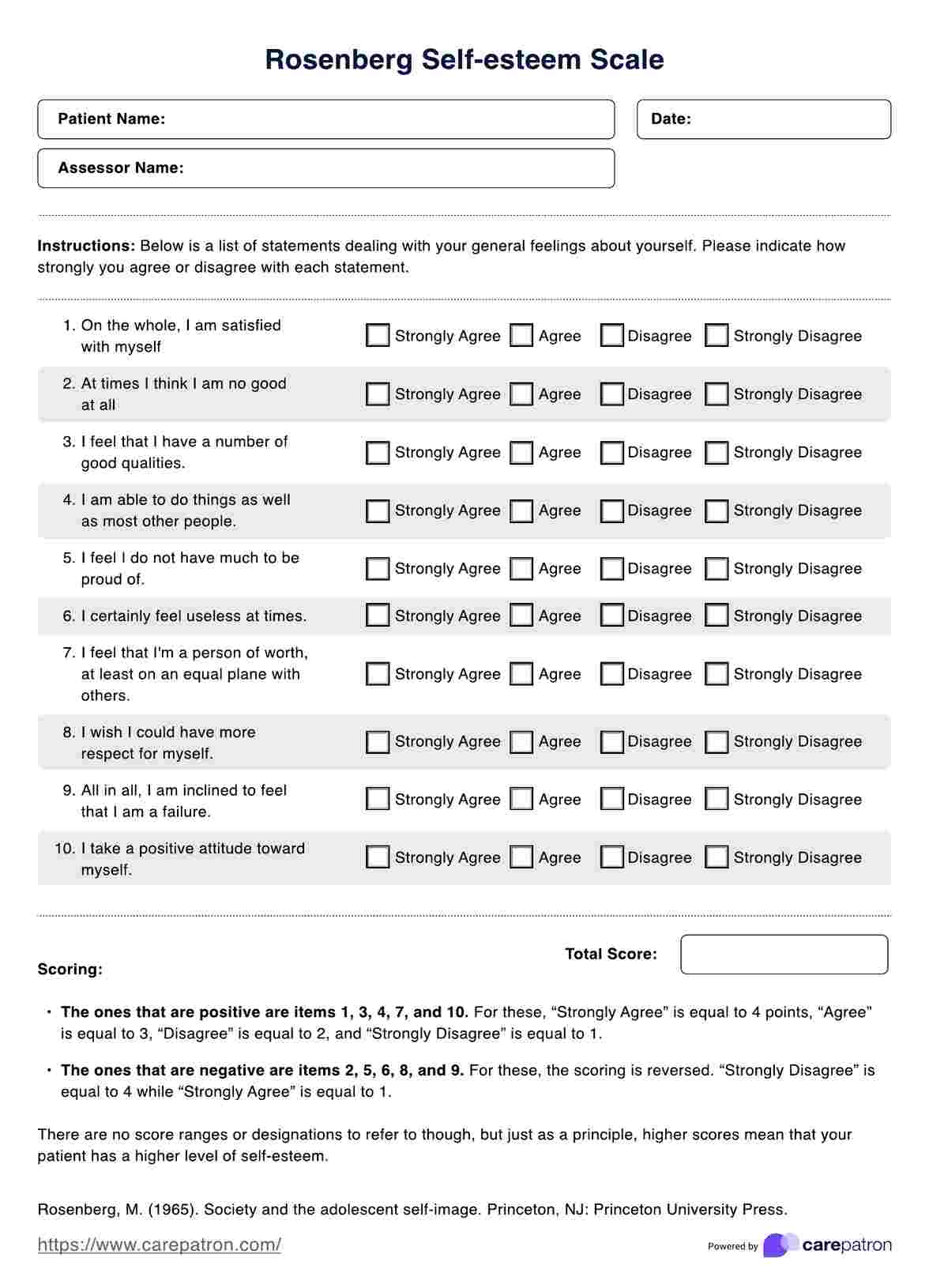The Rosenberg Self-Esteem Scale (RSES) is considered a reliable measure of self-esteem, demonstrating good internal consistency and test-retest reliability. Studies have shown that the RSES produces consistent results over time and across different populations, making it a dependable tool for assessing self-esteem levels.

Rosenberg Self-esteem Scale
If you’re a therapist or counselor and notice that your patient has low self-esteem, use the Rosenberg Self-esteem Scale to assess them and determine the next steps to help them find their self-esteem and self-worth.
Rosenberg Self-esteem Scale Template
Commonly asked questions
The Rosenberg Self-Esteem Scale (RSES) is suitable for use with individuals across a wide age range, including adolescents and adults. While there is no specific age limit for the RSES, it is commonly used with individuals aged 12 and above in both clinical and research settings.
Low self-esteem can stem from various factors, including negative life experiences, childhood trauma, social comparisons, unrealistic standards, lack of social support, and internalized criticism. These factors can contribute to feelings of inadequacy, self-doubt, and a negative self-image.
EHR and practice management software
Get started for free
*No credit card required
Free
$0/usd
Unlimited clients
Telehealth
1GB of storage
Client portal text
Automated billing and online payments











